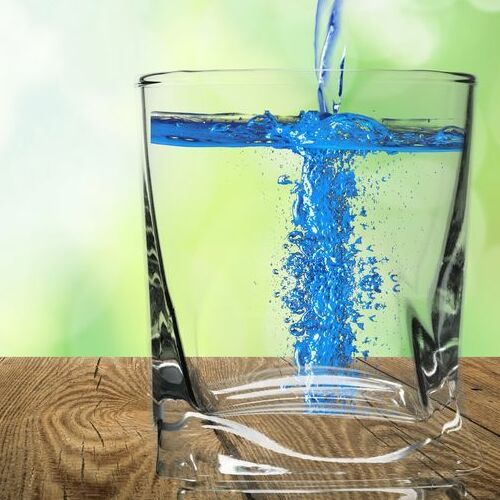
What is the Best Water Filtration System?
Quality does not necessarily correspond to cost. Homeowners are encouraged to do research and homework in order to ensure that they are getting a good water filtration system that will fulfill their needs, both with regard to cost, and necessity. Before deciding upon a single water filter, it will be important for homeowners to discern the water quality of the local water supply. This will have a large impact on deciding how much filtration is necessary, and for what elements the filtration will be used for. The most efficient way to determine the exact levels of pollution in your water supply is to send it to a state-certified lab in your area. Once the results are determined, homeowners can then surmise whether or not a pitcher water filter, a countertop filter, or an under sink filter (or more) is worth the investment.
Water Filtration System for Home
For homeowners who are blessed, or alternatively, cursed, with an extremely sensitive olfactory sense, one of the finest gifts that can be given is a water filtration system for the home. If metal or chlorine can be discerned from a freshly poured glass of water, such an investment will make sense for the homeowner. Many whole house filters are built to filter out sediments with sizes up to 0.35 micron. Some are made to remove chlorine, iron, and heavy metals. Depending on the water needs of the household, some systems include a water softener, UV light purifier, and other special gadgets that make sure that the water is completely purified.
How Much Is A Whole House Water Filtration System?
The national average for a water treatment system, or water filtration system, is $1,773. The typical range for water filtration systems across the United States is $830 to $2,716. The low end of water filtration systems is $175, and the high end for a water filtration system is $4,500. The usual reason for such cost variances ends up being how large, or spacious the house is, and how extreme the water treatment needs to be. Both of these independent variables will drive up or down the overall price for the water treatment system.
Water Filtration System vs Water Softener
With regard to which system is better, water filtration systems or water softeners, the true question that needs to be asked is what is the desired outcome of the water quality? Underground water is the most common source of water for municipal systems. This water is recognized to have a high percentage of minerals compared to surface water. It is also important to understand that the higher mineral content of underground water makes this kind of water hard in most circumstances. Water softeners are directed to focus on eradicating minerals from water while water filtration operates by addressing the broader spectrum of water quality issues.
Are Home Water Filtration Systems Worth It?
The utmost thing that homeowners should know about purchasing a home water filtration system is that most of the problematic contaminants can be removed right before they reach the home pipeline. Another good fact to note is that if the filter is certified by the NSF, the National Sanitation Foundation, it’s an excellent sign that water purity will be the outcome. Installing a whole house filtration system is far more time-consuming and ambitious than installing a countertop filter. Due to the fact that replacing the filter for the whole home can be a burdensome process, make sure that the filter selected does not need to be replaced every couple of weeks or months. Every six months is a better setting for the whole house filter.
Water Filtration System Benefits
There are many different reasons why a water filtration system will produce benefits for the homeowners. Please consult the following list to determine which common elements are removed with filtered water.
- Arsenic. Tap water can contain dangerous levels of arsenic, which is a powerful carcinogenic and has been linked to an increased risk of the development of several different kinds of cancer. Arsenic is poisonous and not safe for consumption.
- Aluminum. Municipal water that has not been filtered can lead to an increasing amount of aluminum ingestion. Aluminum ingestion has been linked to Alzheimer’s disease, hyperactivity, increased learning disabilities in children, and more.
- Disinfection Byproducts. DBPs are extremely harmful elements that are produced by disinfecting water with chlorine, which is also a powerful carcinogenic.
- Fluoride. While fluoride is usually associated with improving oral health, it can actually cause a wide range of health problems such as a weaker immune system and cellular damage that quickens the aging process.
One of the excellent ways a homeowner can upgrade their home water system is through installing a tankless water heater. A tankless water heater can deliver water on demand for homeowners, making hot showers and washing dishes a breeze.
What Does A Water Filtration System Do?
Water filters utilize two main ways to remove dirt from water. The physical filtration of a water filter is known as straining the water to remove larger particles and impurities. Another method of filtering is chemical filtration, which involved passing water through an active material that removes impurities chemically as they pass through the filter. There are four types of water filters. The first is activated carbon, which is based on charcoal, which is a very porous form of carbon. Charcoal is like a cross between the graphite “lead” in a pencil, and a sponge. Another form of water filtration is reverse osmosis. Reverse osmosis is the process of forcing contaminated water through a membrane so that the water passes through but all the contaminants are left behind. The other two types of water filtration are ion exchange, which softens water by removing limescale, and distillation, which involves boiling and kills off many different types of bacteria.
What Water Filtration System Do I Need?
The type of water filter that a homeowner will need will ultimately depend upon the homeowner’s lifestyle, budget, and quality of water. If all of the household water will need to be filtered, then a whole house water filter will be necessary. This said, whole house water filters tend to be expensive, which will not necessarily be possible for all homeowners. If cost is an issue, then a faucet filter would be a good choice. Faucet-mounted filters can improve the water quality more economically, and still assist the homeowner with good drinking water. It is integral to acknowledge the clean air and water that must pervade a home. If you are experiencing poor air circulation in your home, air conditioning service can assist. Particularly in the heat of summer, a strong air conditioning unit can greatly assist with keeping temperatures down.

Why Do I Need A Water Filtration System?
Just like air, water can contain dirt, minerals, chemicals, and other impurities that make water odorous and poor-tasting. Some of these tiny contaminants can endanger the health of the inhabitants of the home, particularly when they involve microscopic organisms and bacteria that can cause serious illnesses. While the United States is reputed to have strong water disinfection and filtration system, it is important to nonetheless be vigilant when it comes to one’s own water supply.
If you think you need a water filtration system in Santa Clarita, CA, call On Call Plumbing at 661-201-6016 to speak with our staff about making an appointment today!

